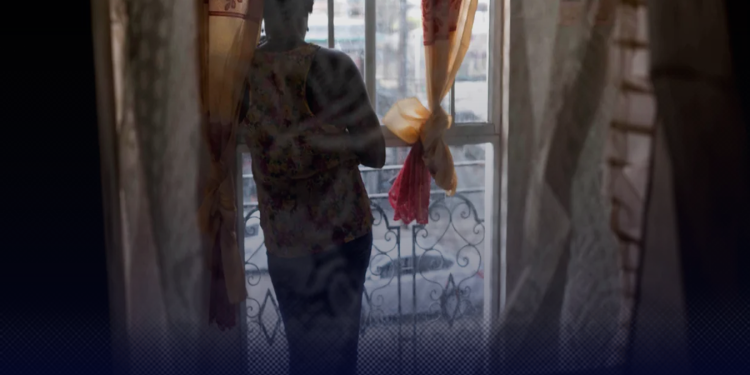This interview series is funded by the International Development Research Centre (IDRC) through a project entitled ‘Placement, Preservation and Perseverance: Afghan at-risk Scholars, Students and Activists’ (PPP) based in the Department of Law and Legal Studies at Carleton University
Introduction: Shabnam Simia has a master’s degree in criminal law and criminology. Sha has worked at the Human Rights Commission of Afghanistan, the legislative committee of the Ministry of Women’s Affairs, and worked as a prosecutor of terrorist crimes in Afghanistan.
Nimrokh: Thank you Ms. Simia for accepting our invitation to talk.
During the 20-year period of the Republic, you served in the legislative committee of the Ministry of Women’s Affairs for some time. There were and still are many criticisms on the existence and way of working of this ministry. What do you think about these criticisms?
Shabnam Simia: The Ministry of Women’s Affairs was envisioned to ensure women’s political participation in the 2001 Bonn Conference. At that time it was necessary to guarantee some things. For example, women’s political participation should have been anticipated. The Jihadist groups that were members of the Bonn Conference and themselves played a role in civil wars and did not believe in the issue of human rights and women’s rights. Therefore, it was important to have a framework that guarantees or protects women’s rights, and this framework was the constitution, in which women’s political participation was included in various ways. One of these solutions was the Ministry of Women’s Affairs. There were many criticisms of its success and how it worked. Of course, the Ministry of Women could not be successful on its own. Limiting women’s work to the Ministry of Women, which alone could guarantee women’s broad participation or protect women’s rights, was not the right thing to do. The Ministry of Women alone could not change the strategies that existed among political groups or the culture of the people, which did not reflect the issue of women’s representation in politics at all. The majority of Afghan people lived in villages and even the issue of women’s work and education was not resolved for them, let alone their political participation and their working in high government positions. This patriarchal view existed within the government itself and no key ministry was given to women during twenty years. Women were limited to specific spaces, and in these specific spaces, women were entrusted with ministries that had less executive power, less bargaining power, and actually had no real power. In Afghanistan, women had a broken political tradition behind them. In the government of the leftists, we had three female ministers, women were in the parliament, in fact, we had a short history of women’s leadership for the first time in this period, which was interrupted by the arrival of the Mujahideen and the civil wars and then the Taliban. Women were again pushed to the private spaces, and during the republic, women had to start from zero again. Therefore, we did not have a correct political model for women, nor a society that reflected the issue of women’s political participation. The Ministry of Women itself was just a political exercise to show the political role of women.
Nimrokh: Despite all this, do you think there was a need for a ministry called the Ministry of Women’s Affairs?
Shabnam Simia: Yes. I agree with the existence of Ministry of Women. The existence of this ministry opened the space for women to be seen in ministerial positions and in the cabinet. There is a something called “occupation of spaces”, which is very important. Even if this occupation of space is a symbolic presence. Because over time, public opinion accepted the presence of women working in high positions. If at the beginning of Karzai’s term, there was only one women’s ministry, in the following periods, we see that more ministries were given to women. In the first years of the Republic, there was a strong reaction from the clergy and the traditional society to the presence of women in certain jobs. But in the last years, this presence itself was no longer discussed and there was a dispute over whether this presence was symbolic or not. It means that people and public opinion accepted that women can work in high positions. It was no longer a question of a woman becoming a judge or a minister or even a presidential candidate. Therefore, having space helps us to change public opinion over time, and the Ministry of Women’s Affairs was a necessity despite its weaknesses. But it was not enough. I worked in the Legislation Committee of the Ministry of Women. The work was really going on, but when a regulation entered the cabinet, because the cabinet was male-dominated and patriarchal, we saw how powerful legal articles were removed to such an extent that when the law was enforced, it lost its power. The Ministry of Women alone could not defend the legislative documents it sent for approval. But this does not mean that because an office is weak for any reason, it should be removed. Both the ministry was weak and the patriarchal cabinet and the history of women’s exclusion were behind us and women did not come from a strong political environment. Women had just started and this short space of trial and error was not enough for them.
Nimrokh: Today, more than two and a half years have passed since the return of the Taliban to power, and in this reign of terror, many horrific and inhuman acts have been carried out against women. One of the most important issues raised recently is the recognition of gender apartheid as one of the crimes against humanity. To what extent is this issue practical and what is its importance for Afghanistan?
Shabnam Simia: We should welcome any law passed in favor of women. When gender apartheid is recognized as a crime, it affects the public opinion of the world and this is a good thing. It may be possible to prosecute some people who committed this crime. One issue is that this is a good law and the other is how effective it is. I am not optimistic. Taliban do not adhere to any domestic or international law. Even though they are in dire need of recognition, they do not give in to any of the international pressures, protests and criticisms, and they only stick to their religious and ideological conviction. In fact, resistance against such laws is considered a privilege. Despite the fact that suicide is a public crime, they gave money to the families of suicide bombers on Eid al-Fitr. Therefore, the criminalization of gender apartheid does not affect the Taliban’s thoughts and does not create fear for them. It is good that this happens, but the Taliban do not change their behavior against women. There is no change on the inside, but on the outside it can help women justify their situation. In the future, someone may find the opportunity to slander against some figures. But the International Criminal Court is very weak in this field. If big powers are not behind such laws, they are practically ineffective even in the West.
Nimrokh: Explain more about the possibility of criminal prosecution by the International Criminal Court.
Shabnam Simia: The bitter reality that exists in the whole world is that, contrary to what is said, the law is independent, and the judicial system is independent from the political system, practically there is no such thing. Justice has always been shown to be influenced by politics. During the 20-year period of the republic, many people were supposed to go to trial, but instead, you saw the national amnesty and reconciliation law, which pardoned many war criminals. Therefore, you cannot bring anyone to justice unless the powerful men want to. The crimes that were brought to the International Criminal Court after the World War were when the powerful countries were the plaintiffs, and in fact it was the court of the victors against the defeated. This shows that law is not effective until you have enough power. In the future of Afghanistan, we do not know which groups will be connected with which countries. Is it possible to pursue war crimes, crimes against humanity, rape, etc.? I am not optimistic. When I was working as a prosecutor against terrorist crimes in Afghanistan, war crimes by Americans and other countries in Afghanistan were supposed to be investigated several times, but even the international prosecutor was not allowed to enter Afghanistan and investigate. Despite the fact that the Human Rights Watch has repeatedly reported on the crimes that happened in Afghanistan. Therefore, in the political future of Afghanistan, depending on how the system will come to power and which countries it depends on for support, one cannot be too optimistic that the powerful and warlords can be brought to trial.
Nimrokh: Inside Afghanistan, after the recapture of the country, we see scattered movements of women. Do you think this dispersion harm the principle of women’s social movements?
Shabnam Simia: Regarding women’s protest movements inside, I must say that it had a very good effect. Despite the fact that they are very scattered and are suppressed in the worst way. You see women who take part in protests sometimes disappear for long periods of time, they are tortured, they are raped, but they are still in the streets protesting. This awakening has been created in our women who do not like to go back to the past and give in to a system that completely excludes and denies women, and with the help of modern technology and today’s media, these voices have had a lot of echo. And so far, it has helped the Taliban not to be recognized internationally. And this has made the Taliban very angry. We see in the speeches of American officials or Western countries that they have a desire to interact with the Taliban, and even in the United Nations, the issue of recognizing the Taliban has been discussed. In fact, it is the women of Afghanistan who create fear for these governments by starting protests. They know that they are being condemned in front of the public opinion of their own communities.
During the republican era, even with the existence of protective laws, women could not become a organized group. We needed other methods, which were either ignored for various reasons or no one did a radical and major work. We did not have a real and powerful civil society. One of our weaknesses throughout history is the lack of a coherent and powerful civil society that nurtures democratic institutions that represent the political will of the people. We had and still have a scattered society in Afghanistan. The limited civil society that was created with the help of Western NGOs and their large amounts of money did mostly project work and not fundamental work. When there is no civil society, people have no place to gather and practice politics. They have nowhere to show their political will. Our people have always been scattered. Therefore, this is one of the reasons why women could not find unity. Women do not have a strong political history behind them, nor strong supports. Even during the republic, there were no institutions where women could become members and through these institutions they could have political, cultural and social activities. It will hurt women and it will become a source of frustration over time and we may see less protests. We should admire the women who are still resisting and try to support them in any way we can. We must maintain our relationship with them and take this active spirit, which has less history among women in Afghanistan, as a good omen. Our women are no longer willing to give up their fundamental rights. This is a very good start. Let’s not let a long break cause women to retreat into private space again.
Nimrokh: You talked about supporting women fighters inside Afghanistan. What can the Diaspora community do to support them?
Shabnam Simia: The first is that the diaspora community should understand the size of its influence. They should understand that they does not have the influence of the domestic society. They should not have illusions about their role. We have to see in which fields we have influence and power. Someone who is fighting inside, directly facing the system of oppression, feels the danger of death and rape and torture. So we are not equal to them, but we can be effective. We have to be in touch with the community of women fighters inside. One of the achievements of technology is that we can be in contact with the domestic society more and better. Be their voice. Let’s have programs to support these women. Let’s have programs to empower the women who are inside. It is very important that we maintain our connection so that we do not lose our connection with the internal reality of Afghanistan and we can properly see and reflect the problems of women inside Afghanistan. If we talk to women who experienced the first period of the Taliban, they talk about underground courses. These underground activities helped the community to survive. But at least we have more extensive activities like online schools and universities now. We need to work more in the field of education. Where women can have a better understanding of themselves, of the ideologies that limit them, of the impact of authoritarian regimes on the status of women, and this requires education. We should have different programs on cultural, social and political issues.
And let’s remember that we are not only fighting against the Taliban. it’s wrong. Women are not only facing the Taliban. As Foucault says, we must pay attention to the microphysics of power. Power does not only emanate from within the government. Therefore, the fight against power is not only with the government. Afghanistan is a very traditional society. In many parts, the opinion of the common people is not much different from that of the Taliban regarding women. In a patriarchal society, even if people are not against women’s education and employment, they don’t care much if women stay at home. We have to fight with different thoughts in different fields. Women have to fight against a very restrictive anti-woman culture. And it is important that they can bring men along with them. Because the problem is not only the problem of women. We need to be in contact with the society inside Afghanistan so that we can identify the ways to go forward. If this link does not exist, create a link. If it is not strong, make it stronger. Even if change happens slowly.
Nimrokh: Let’s take an optimistic look into the future and say that the Taliban will soon be gone. What kind of system can we imagine for the future of Afghanistan where women can have their real place and their rights are guaranteed and supported?
Shabnam Simia: It is very difficult to answer this question for a country like Afghanistan. When we had the republic that was corrupt from the inside, what was its replacement? Taliban. The Taliban came and threw us back with all their brutality. Now, who is going to replace the Taliban. There are Mujahideen groups that are going to face the Taliban. It is true that in the Mujaheddin government, the doors of schools are opened for women, women are included in the social and cultural space and maybe a little political, but we all know that ideological regimes usually do not give a proper place for women within them. We need a democratic regime. We need a constitution that does not discriminate. There must be an election. The government should have long-term strategies to change public opinion in the society so that the society understands that there is no possibility of development without women. Women should have their real status and rights and be supported for a productive and real presence. We need an open political society.
But I am not optimistic about the future system of Afghanistan either. Mujahideen are completely closed minded. If they replace the Taliban, I am not optimistic. Maybe because they don’t prohibit women’s education and presence in society, they are better in the opinion of many, but we need a different and democratic system.
Nimrokh: In the end, do you have anything to add.
Shabnam Simia: Today more than ever we need to trust each other. It is important for the whole society that we work towards a general change in the society and not only the life of women. Considering that we don’t have a proper intellectual tradition and many political struggles behind us, it is very important for us to gather for the first time today for the perspective we have in mind for women. Find the gaps. Let’s diagnose and review. find each other. Let’s try to make a written history for women. At least for the political future of the generations that come after us, so that they have a clear view on women’s situation and can continue women’s fights.






